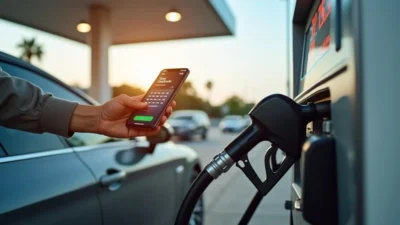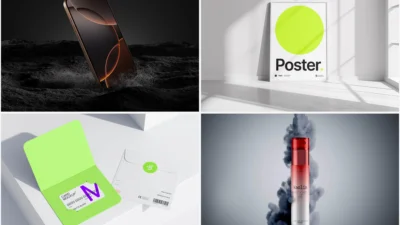Best Gas Cards for Saving on Fuel in 2025
Gas cards offer substantial fuel savings through cashback rewards, points programs, and exclusive discounts at participating stations across the U.S. Card issuers like Valero can provide specialized credit cards that earn 3-5% back on fuel purchases, while prepaid and fleet options help businesses track expenses and manage employee spending. With average gas prices fluctuating between $3-4 per gallon nationwide, selecting the right gas card can save drivers hundreds of dollars annually through strategic reward optimization and network-specific benefits.
Types of Gas Cards and Their Core Benefits
Gas cards fall into three primary categories: credit cards with fuel rewards, prepaid gift cards for budgeting, and business fleet cards for commercial operations. Credit card options from major issuers offer rotating cashback categories, sign-up bonuses worth $150-300, and additional perks like roadside assistance. Prepaid cards provide spending control without credit checks, making them ideal for college students or those building credit. Fleet cards streamline billing for businesses with multiple vehicles, offering detailed transaction reports and volume-based discounts at over 95% of stations nationwide.
Top Gas Credit Cards Offering Maximum Rewards
Leading gas credit cards deliver 3-5% cashback on fuel purchases, with some offering up to 10% during promotional periods. The Costco Anywhere Visa earns 4% on eligible gas purchases up to $7,000 annually, while the Sam’s Club Mastercard provides 5% back on gas purchases up to $6,000 yearly. Premium cards like the Citi Custom Cash allow users to earn 5% cashback on their top spending category, which automatically adjusts to gas if that’s where you spend most. These cards typically require good to excellent credit scores (670+) for approval and may charge annual fees ranging from $0-95.
Understanding Fuel Purchase Points and Redemption
Points accumulation varies significantly across different card networks and loyalty programs. Most gas cards award 1-5 points per dollar spent at stations, with bonus multipliers during promotional periods. Chevron and Shell loyalty programs offer additional savings of 5-10 cents per gallon when combined with their branded credit cards. Redemption options include statement credits, gift cards, travel bookings, and direct deposits to your account. Some programs allow point transfers to airline or hotel partners at favorable ratios, maximizing value for frequent travelers.
Network Acceptance and Station Coverage
Gas card acceptance depends on whether you choose branded or general-purpose cards. Branded cards from specific stations work only at their locations and affiliates, limiting flexibility but offering deeper discounts. Universal credit cards with gas rewards work anywhere that accepts Visa, Mastercard, or American Express, providing broader coverage across approximately 150,000 stations in the U.S. Major networks like ExxonMobil, BP, and Shell operate extensive station networks, ensuring convenient access in most regions. Rural areas may have limited options, making universal cards more practical for long-distance travel.
The application process for gas cards typically requires basic information including income, employment details, and Social Security number for credit verification. Fuel cards for tracking fleet expenses provide comprehensive resources on improving your credit score to qualify for premium rewards cards with better cashback rates and lower fees. Instant approval decisions are common for applicants with scores above 700, while those with fair credit may need to consider secured or prepaid options. Pre-qualification tools help determine eligibility without impacting credit scores through soft inquiries.
Business Gas Cards and Expense Management
Business gas cards streamline fleet management through centralized billing, customizable spending limits, and detailed transaction reporting. Companies can set individual employee limits, restrict purchases to fuel only, and receive itemized statements for tax purposes. Popular business options include the WEX Fleet Card and Fuelman, which offer discounts up to 8 cents per gallon at participating locations. These cards integrate with accounting software, automate expense tracking, and provide fraud protection through real-time alerts. Small businesses benefit from improved cash flow management, while larger operations save through volume-based pricing agreements.
Security Features and Fraud Protection
Modern gas cards incorporate advanced security measures including EMV chip technology, contactless payment options, and zero-liability fraud protection. Real-time purchase notifications via mobile apps alert cardholders to suspicious transactions immediately. Many issuers offer virtual card numbers for online purchases and the ability to instantly freeze cards through their app. Biometric authentication adds another layer of security for mobile payments. Gas stations increasingly support tap-to-pay technology, reducing skimming risks at pumps. Regular monitoring of account statements and setting up automatic alerts for transactions above specified limits helps detect unauthorized use quickly.
Maximizing Savings Through Strategic Card Use
Combining multiple gas cards optimizes rewards across different spending categories and stations. Using a 5% cashback card for gas purchases while reserving a 2% general cashback card for convenience store items inside stations maximizes returns. Timing purchases with quarterly bonus categories can yield up to 5% additional rewards. Stack manufacturer rebates, station loyalty programs, and credit card rewards for triple savings. Apps like GasBuddy help locate the cheapest stations along your route, while grocery store fuel programs offer additional per-gallon discounts when combined with shopping purchases.
Balance Transfers and Fee Considerations
Many gas rewards credit cards offer introductory 0% APR periods on balance transfers lasting 12-21 months, helping consolidate high-interest debt while earning rewards. Transfer fees typically range from 3-5% of the transferred amount. Annual fees vary from $0 for basic cards to $95+ for premium options with enhanced benefits. Foreign transaction fees of 2-3% apply when using cards internationally. Late payment fees average $40, making automatic payments essential. Understanding these fees ensures the rewards earned exceed any costs associated with card ownership.
Customer Service and Digital Account Management
Leading gas card issuers provide 24/7 customer service through phone, chat, and mobile apps. Digital account management features include instant transaction notifications, spending analysis tools, and customizable alerts. Mobile apps enable remote card management, payment scheduling, and rewards redemption. Many issuers offer financial education resources, credit score monitoring, and personalized spending insights. California and other states have specific consumer protection laws governing dispute resolution and billing practices. Member benefits often extend beyond fuel savings to include rental car insurance, extended warranties, and purchase protection.
Gift Cards and Prepaid Options
Prepaid gas gift cards offer flexible gifting solutions for holidays, graduations, and employee recognition. Available in denominations from $25-500, these cards work at specified station brands without requiring credit approval. Digital delivery options provide instant gifts via email or text. Some prepaid cards offer reload capabilities through direct deposit or cash additions at participating locations. Parents use them to manage teen driving expenses while teaching financial responsibility. Corporate buyers receive volume discounts on bulk orders, making them cost-effective employee incentives.
The Future of Fuel Payment Technology
Emerging payment technologies are transforming the gas station experience through mobile apps, connected vehicles, and biometric authentication. Pay-at-pump apps eliminate the need for physical cards, storing payment information securely in digital wallets. Vehicle manufacturers partner with fuel retailers to enable automatic payment through dashboard systems. Subscription services offer unlimited fuel for fixed monthly fees in select markets. Electric vehicle charging networks increasingly accept traditional gas cards, preparing for the energy transition. These innovations promise greater convenience while maintaining the rewards and benefits consumers expect from their fuel payment methods.

Lexy Summer is a talented writer with a deep passion for the art of language and storytelling. With a background in editing and content creation, Lexy has honed her skills in crafting clear, engaging, and grammatically flawless writing.



